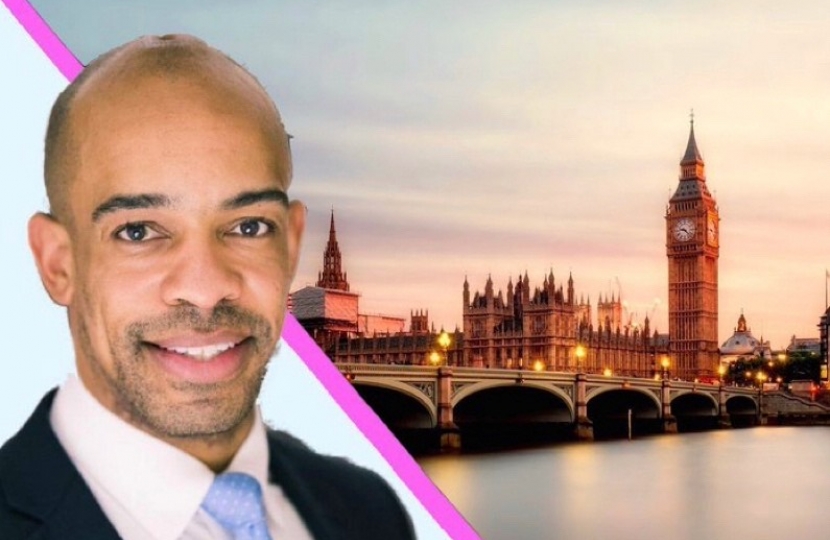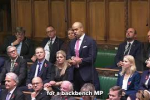
When Sadiq Khan became the Mayor of London it appeared to be a shrewd move for the Tooting-born Labour MP. Become the mayor of the capital, his home town and ostensibly a Labour city, before using it as a platform to launch a leadership campaign; a route now helpfully proven by the career trajectory of the previous incumbent. In May 2016 the stage was set for Khan to make his mark, but nearly four years later his mayoralty has failed to deliver on its promises. Across countless areas of its jurisdiction City Hall has been guilty of staggering profligacy, but it is the continuing inability to staunch the wound caused by now endemic serious and violent crime that will define Khan’s legacy in London. His mayoralty is unlikely to be looked back upon fondly by anyone besides Khan himself.
During the tenure of the current Mayor knife crime has reached unprecedented levels with 15,080 incidents in the last recorded year up to September 2019. Indeed last year saw an 11-year high of 149 homicides in London. The number of knife-related homicides has increased by 47% since he took office in 2016, the number of blade-injuries over the same period by 32%. Whilst there are a myriad of contributing factors behind this increase, cultural, economic and judicial, it is Khan who has resolutely failed to engage and sufficiently understand the root cause of any of them; his circumspect approach to implementing effective solutions for tackling violent crime compounding each previous failure.
Under Sadiq Khan City Hall’s staffing budget has increased by 82%, near doubling the cost of its operation under Boris Johnson, to a budgeted 2020-21 figure of close to £65.6 million. With over 400 additional staff one might expect this to reflect the creation of an internal structure adroit at the intelligence-gathering, planning and execution required in order to provide a solution to the Mayor’s Number 1 priority, and yet bereft of a coherent approach Khan has seen fit to follow his now familiar fire-and-forget announcements; a headline-grabbing title (hopefully with an acronym), an announcement in the Evening Standard, throw some money/millions at the problem, hope that no one remembers next time round.
Having now had four years to implement deep, precise, pioneering solutions to what has evolved into a multi-faceted crisis Khan has been underwhelming in displaying the decisive leadership that the situation has demanded. Hesitant and lacking inspiration his mayoralty has been characterised by an inability to identify solutions, time-and-again relying upon soundbites and spin to mask the paucity of innovation. He has been over-reliant upon the tropes of blaming “Tory-austerity” and the need for more youth services; familiar ideas that are easy for the public to digest and play well with the gallery. The Mayor has adopted a scatter-gun approach to violence reduction, approving a variety of schemes, programmes and initiatives seemingly without any form of holistic vision despite having had a Knife Crime Strategy in place since early 2017:
- The Violence Reduction Unit (VRU) set up at a cost of £6.8 million by Khan less than 18-months ago has had little impact. Having already been accused of cronyism over the appointment of its Labour leader Lib Peck, Khan has now more than doubled the unit’s annual budget to £5 million whilst knife-related homicides have increased once again in the period since its inception.
- The proposal to GPS-tag knife crime offenders on licence, first mooted in the Mayor’s aforementioned Knife Crime Strategy shortly after he took office, was only approved for a wider rollout in pilot form to 20 boroughs in the second half of 2019 with the final boroughs only scheduled to receive the capability in September, seven months prior to the end of his term.
- The rescue and response programme funded by the Mayor’s office in 2018 to the tune of £3 million over three years and implemented to help those embroiled in gang activity saw fewer than 6% of those referred successfully drawn away from the lifestyle by the scheme.
- In 2017 the Mayor greenlit an Online Hate Crime unit for the Metropolitan Police. Between its launch in April 2017 and August 2019 this unit achieved just 7 prosecutions from 1851 recorded cases, a success rate of 0.37%. Launched to great fanfare it has had a total budget of over £1 million thus far between the Mayor’s office and the Metropolitan Police; one of many examples of City Hall’s extravagance.
Sadiq Khan has claimed that tackling violent crime is his number one priority and yet despite executive control over London’s policing budgets he has repeatedly obfuscated and deflected accountability for his inability to effect change in favour of media grandstanding. An absence of joined up thinking under his mayoralty has simultaneously failed to instil hope in potential victims and fear in offenders.
Whilst Johnson’s City Hall was a lithe and eager machine by comparison, under Khan it has ossified, mired in bureaucracy and unable to streamline its response. Repeatedly criticised for prioritising PR officers over police officers, Khan’s incoherent approach to combatting crime has created a bloated and unwieldy political machine, reliant upon heresthetics and apparatchiks. The improvident spending that has characterised City Hall over the past four years has wasted the opportunity to tackle violent crime on the front foot.
With the situation seemingly worsening intra-month under Khan’s reactive chairmanship, London has undoubtedly become a more dangerous city than before he took office. Londoners would be wise to seize the forthcoming opportunity for a changing of the guard.
The original article was published on freemarketconservatives.org on 3rd February 2020




